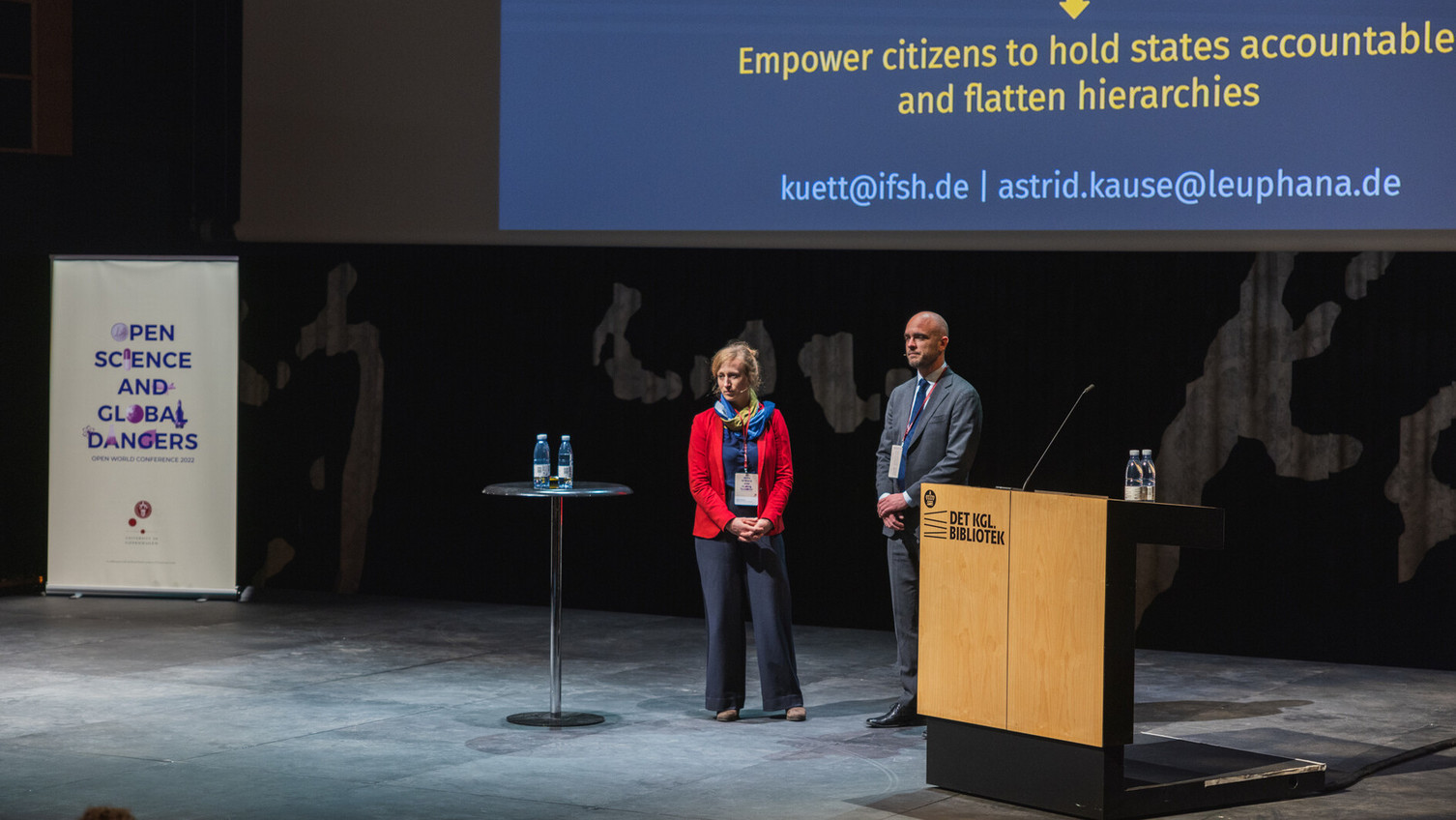Openness is essential for the science of the future
2022-12-13 On 10 and 11 November 2022, the Niels Bohr Institute at the University of Copenhagen hosted the fourth Open World Conference. Under the motto "Open Science and Global Dangers", the organisers brought together interdisciplinary researchers to discuss the dilemmas of openness in research and research collaboration. The keynote address was given by Dr. Astrid Kause, Professor of Sustainability Science and Psychology at ISEP, together with Dr. Moritz Kütt from the Institute for Peace Research and Security Policy Hamburg.
"Openness is essential for the science of the future," says Astrid Kause, "citizens need transparency about what research is being done, what the results are, and what they mean for political action. Together with the scientist Moritz Kütt, the sustainability scientist from Leuphana University Lüneburg gave the keynote address on the first day of the conference on the topic "What remains to be done for an open, global science? The scientists answered using the two global challenges of nuclear weapons and climate change as examples. They discussed that in tackling these challenges, science should enable an open exchange of information, for example by making research software available to all as open source. This would only work if science is conducted globally and independently of state power. States in the global South, for example, often suffer from global dangers such as nuclear weapons and climate change, but are excluded from solutions.
"In addition, research should be communicated to the general public in such a way that it is understandable," explains Kause, "there are many empirically well-researched ways to do this. These are, for example, to use simple language and not to mislead people with statistics and graphics. Furthermore, it is important to convey to them how trustworthy individual findings actually are. For this, it must be transparent what scientific consensus and also uncertainty exactly mean for them. This is even more important in times when people feel polarised or left behind: citizens must be empowered through transparent science. Open, global science reduces knowledge hierarchies between scientists and the public and between states and citizens. It allows people to participate effectively in political processes.
Prof. Dr. Astrid Kause is a researcher at the Institute for Sustainability Education and Psychology on transparent science communication, the perception of uncertainty and mechanisms of social polarisation in the context of climate and health.
Other speakers at the conference included Naomi Oreskes (Professor of History of Science and Associate Professor of Earth and Planetary Sciences, Harvard), Ole Wæver (Professor of International Relations, Department of Political Science, University of Copenhagen) and Zia Mian (Physicist and Co-Director of the Program on Science and Global Security, Princeton University).
The conference was inspired by Niels Bohr's 1950 letter to the United Nations, in which he recommended "open science" to overcome the dangers of nuclear armament.

